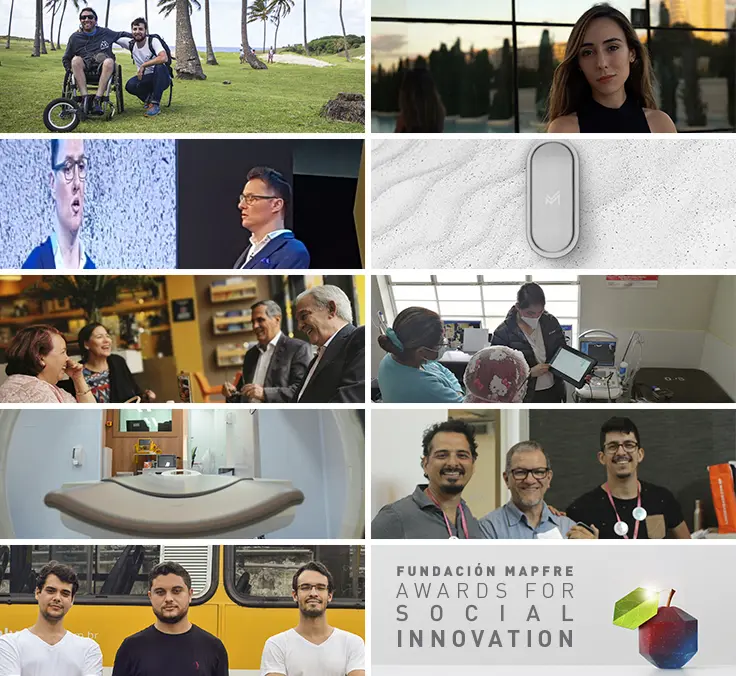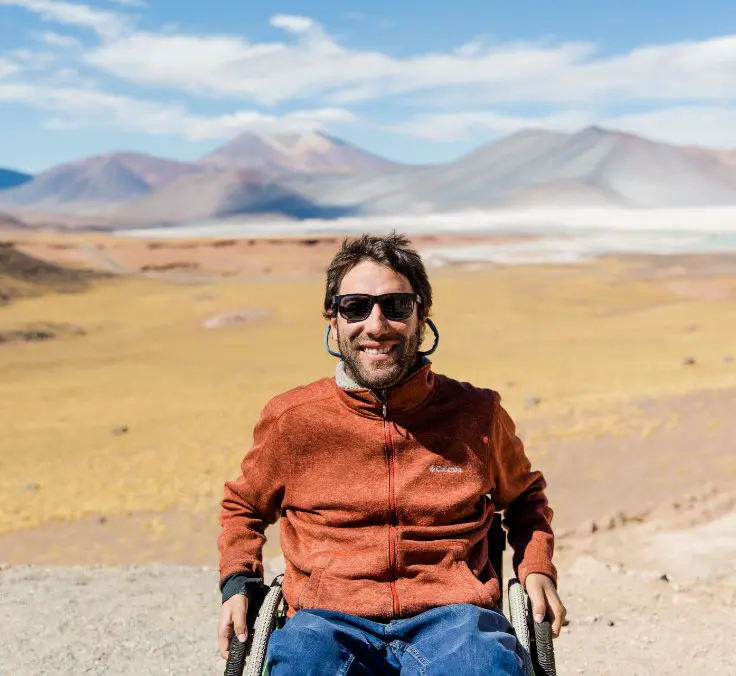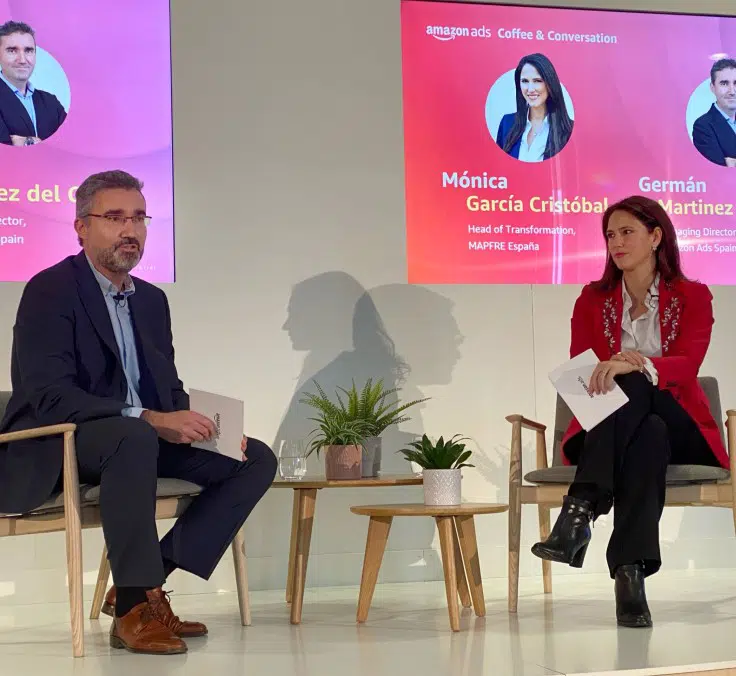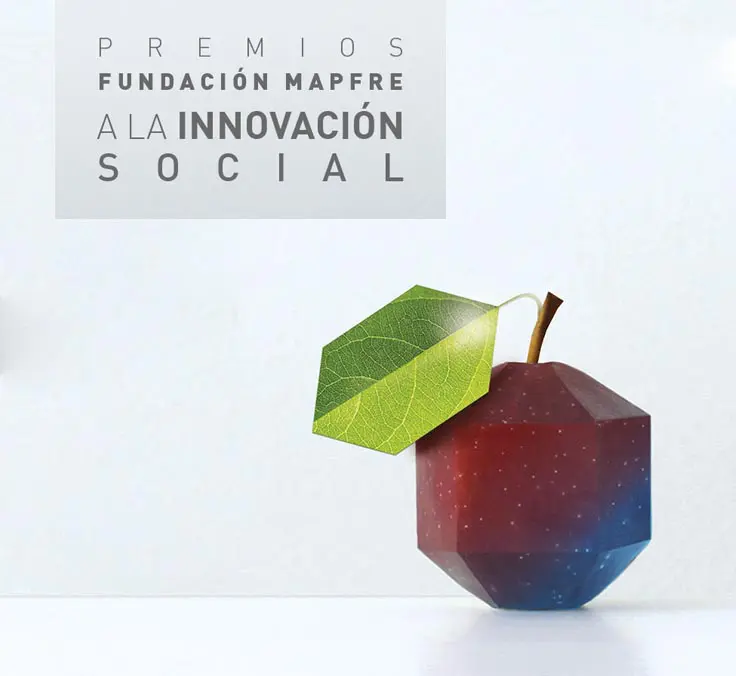INNOVATION| 04.05.2022
Get to know the 9 finalist projects for the Fundación MAPFRE Awards for Social Innovation
The prizegiving ceremony for the Fifth Edition of the Fundación MAPFRE Awards for Social Innovation was held on May 4 in Madrid. This edition received more than 200 entrepreneurial submissions from all over the world, from which nine finalist projects from Spain, Greece, Mexico, Uruguay, Chile and Brazil were selected.
The projects are aimed at improving people’s lives, especially in the fields of health and prevention; safe, healthy and sustainable mobility; active aging; and the aging economy.
How were the Social Innovation Awards founded?
Society is increasingly facing new situations and challenges for which new solutions must be sought and provided. The fight against poverty and inequality, the crisis generated by the coronavirus and the imperative need to curb climate change are just some of the challenging scenarios we face as humanity. The need to enable access to health for all people and the opportunity to actively integrate our seniors and harness their capabilities require innovative solutions that focus on the well-being of people and our planet.
With this firm commitment, the Fundación MAPFRE Awards for Social Innovation were born, in collaboration with IE University. Now in their fifth edition, they seek to promote social projects that are transformative and create new resources in society. Social innovation is an essential tool for achieving these objectives.
What do we mean by social innovation?
Social innovation is defined as all those innovative ideas about products, services and models that solve a social problem or meet a need more effectively and efficiently than current options, while establishing new social relationships and synergies.
Social innovation combines technology with purposes that directly affect people’s well-being and improve their quality of life. Therefore, we can affirm that social innovation includes solutions that profoundly change the social system we have been given, thus reducing people’s vulnerability.
Fifth edition of the Social Innovation Awards
This time, innovative projects with great potential for social impact have been promoted in the categories of prevention and mobility, senior economy and improvement of health and digital technology (e-health). In addition, three major territories participated: Brazil, the rest of LATAM and Europe.
After the difficult evaluation process and with more than 200 applications submitted, the nine finalists (one finalist for each category and region) have been chosen to participate in the grand finale. The winning projects, one per category, will receive the prize of €40,000 to continue project work, as well as additional support with a coach specialized in presentation skills, communication and growth of social innovation projects. In short, Fundación MAPFRE will provide them with the necessary tools to carry out their projects.
Projects with social impact: Virtual caregiver, shared hosting, innovative invention
Among the nine finalists are two Spanish projects, Tucuvi and Kuvu. The technology startup Tucuvi has been selected in the category Health Improvement and Digital Technology (e-Health), and seeks to make healthcare accessible and efficient so that all people can have the best possible quality of life at home. They have developed Lola, the first virtual nurse by voice, with artificial intelligence, who is able to monitor the patients’ health by talking to them with just a phone call. The system, which has served more than 10,000 seniors during the pandemic, does not require the installation of devices, Wi-Fi or apps. Just a phone is sufficient to reach every home. They not only assist and accompany people and improve their health and quality of life, but also provide health professionals with data to make better decisions.
The second Spanish project, which is in the Senior Economy category, is that of the Basque company KUVU, with KUVU Homesharing. It is a platform that brings together people over the age of 55 who have a spare room and want to share their home with people from other generations who are looking for accommodation. The organization, which has so far achieved agreements with more than 200 landlords, thus contributes to helping older people reduce unwanted loneliness, as well as increasing their quality of life and their income. They safeguard harmonious cohabitation and manage the lease arrangement so that seniors can focus on their experience of living together and overcome their fears.
In Europe, there is a third project from Greece selected in the Prevention and Mobility category called Laddroller. It is an innovative mobility device that will exponentially improve the lives of people with a disability and their caregivers. This innovative project consists of an elevating wheelchair with four-wheel drive so that people with disabilities can move with greater ease and autonomy in spaces with poor accessibility. Laddroller users will better access the job market, save money on home modifications, health care systems will reduce their reimbursement costs; and this is a small part of the measurable positive impact created by this invention. It will change people’s lives, enhancing their health and independence.
Epilepsy, guide dogs and active aging
Joining the European entrepreneurs are another six that are also finalists, coming from Brazil, Mexico, Uruguay, and Chile.
The Brazilian projects selected are: Epistemic, a portable device capable of predicting epileptic seizures; Lysa, a robot that acts as a guide dog and facilitates the mobility of people with visual impairment; and Mais Vivida, a platform that is used to connect young and old people to improve intergenerational relationships.
Lysa has been selected as a finalist in the Prevention and Mobility category. Lysa is a robot. It takes on the functions of a guide dog that allows safe, economical and autonomous mobility for visually impaired people. The robot has cutting-edge technology and artificial intelligence that can map different physical spaces and make the daily lives of visually impaired people easier, raise their self-esteem and allow them to frequent such spaces in an autonomous manner.
The project selected in the Senior Economy category is Mais Vivida, a platform to improve active aging, which connects young and old to provide lifelong learning. The younger ones, who are called “angels,” help seniors in learning and using new technologies for their daily lives. A project involving inter-generational cooperation that offers virtual or face-to-face classes and with lectures and training, through skills building for senior audiences on digital channels.
In the category of Health Improvement and Digital Technology (e-Health), we find the Brazilian project Epistemic. The mission of this project is to improve the quality of life of people with epilepsy and their families. They have developed a system with three elements: the first is a portable device capable of predicting epileptic seizures that warns the patient and his or her caregiver half an hour before a seizure occurs. The second is an epilepsy diary application in which the patient reports their day in a simple and intuitive way, and the third is a web platform for the physician to view all the patient’s information and thus correlate the possible triggers of his seizures.
Caregivers, emergency management and personal growth
And among the Latin American projects we find Smert (Chile), an emergency managementsystem; NAU (Uruguay), a platform oriented to the personal growth of people over 50 years old; and ANA-Paz Mental (Mexico), a software platform for untrained caregivers of dependent people.
In the Prevention and Mobility category, we find the Smert project. It is an emergency management system that, by reading a QR code, delivers vital, strategic and immediate information to emergency teams in less than 15 seconds in situations of disasters such as building fires, hostage-taking, terrorist attacks, natural emergencies and others. The system enables better management of emergencies and prioritizing the rescue of people in need of help, thus reducing the risk of the propagation of such emergencies.
NAU, selected in the Senior Economy category, is a platform oriented to the personal growth of people over 50 years old. It helps them in learning and fosters social relations with other age groups. The platform offers virtual experiences (meetings and workshops) for people who not only wish to receive but also to contribute their own knowledge and experiences.
Finally, in the category of Health Improvement and Digital Technology (e-Health), we find ANA-Paz Mental from Mexico. This is easy-to-use software that helps untrained caregivers to provide better care for patients at home. The platform has modules for training, patient monitoring and medical alarms and notifications. The goal of the project is to help families avoid unnecessary medical expenses while helping caregivers gain skills that will be much needed in the job market.
Mentoring and visibility with investors
Each of the projects will become part of the Red Innova, the community of entrepreneurs in which winners from previous editions also take part. Here, support is given to the exchange of knowledge and to different channels for promoting their projects, so as to help them become known. In this regard, they will receive support and guidance from IE University for the most effective communication and development of their proposals.
Social innovators stay connected through this “network of networks,” which contributes to the social innovation ecosystem and enhances the positive impact that MAPFRE aims to generate with such initiatives.
RELATED ARTICLES:





